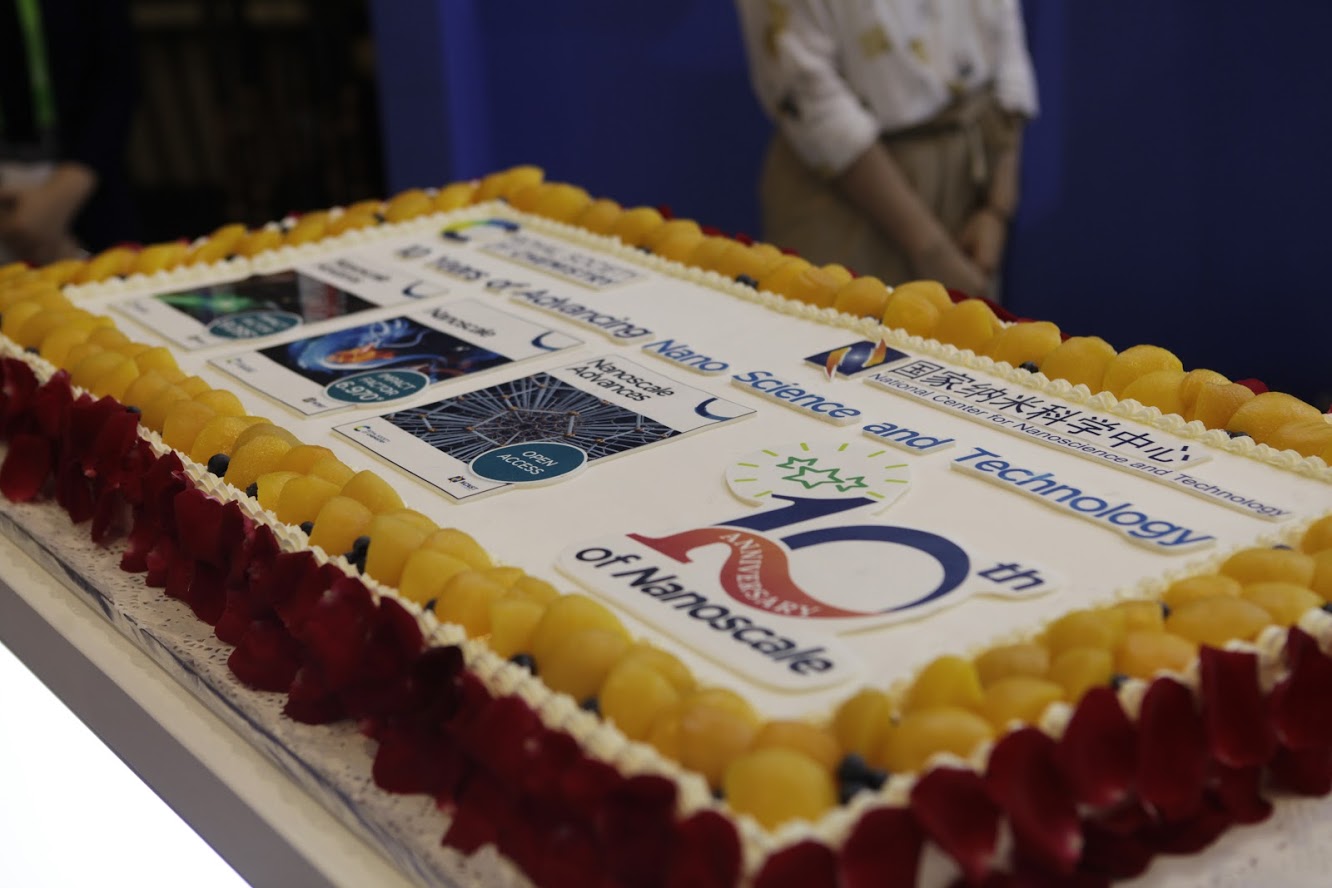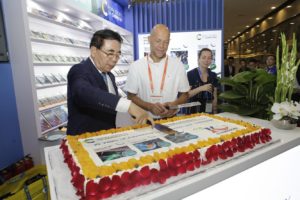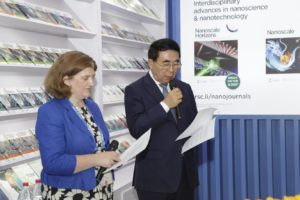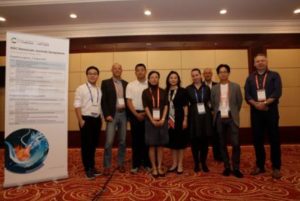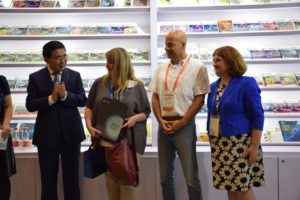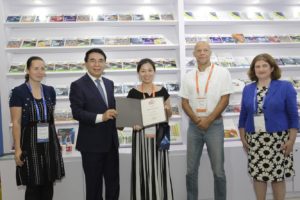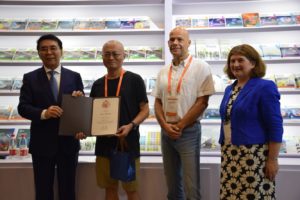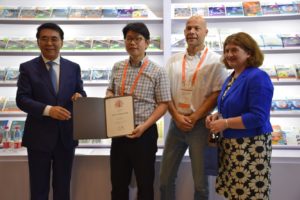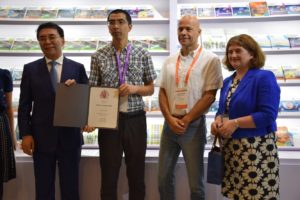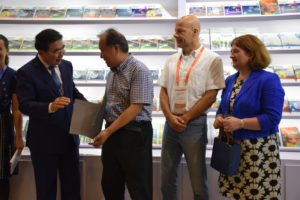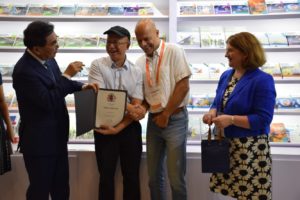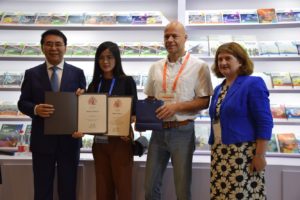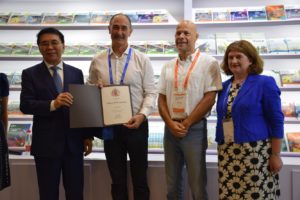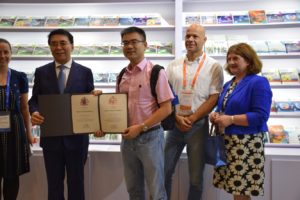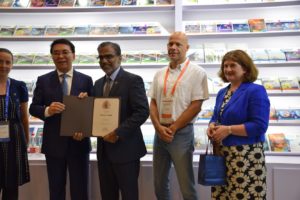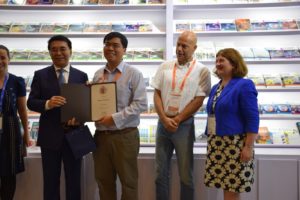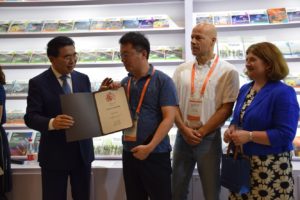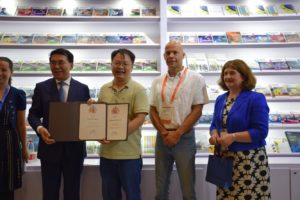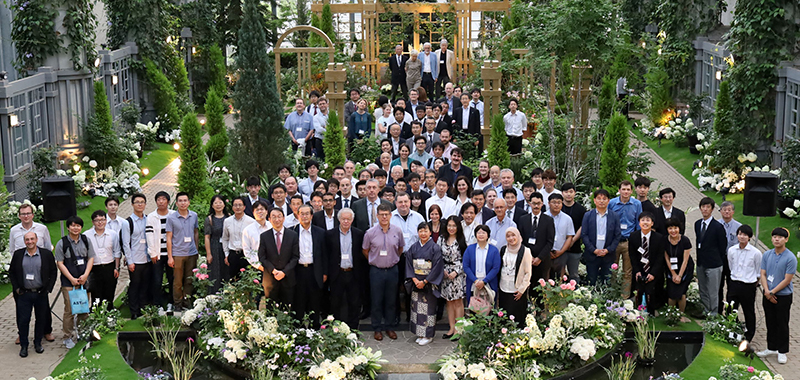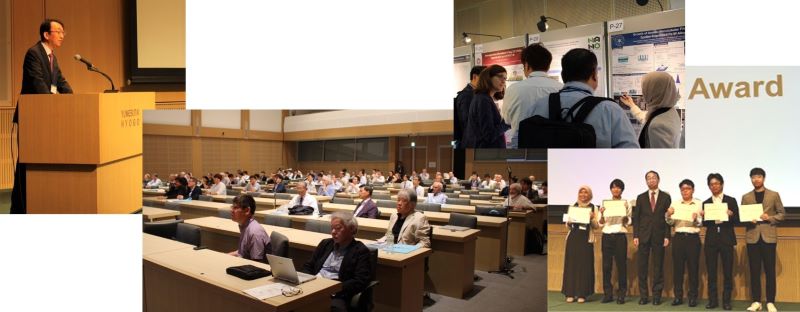We are delighted to welcome four new Associate Editors, working across Nanoscale and Nanoscale Advances!
Professor Cinzia Casiraghi
University of Manchester, UK. Homepage.
| Prof Cinzia Casiraghi has a Chair in nanoscience, at the Department of Chemistry, University of Manchester, UK since 2016. She received her BSc and MSc in Nuclear Engineering from Politecnico di Milano (Italy) and her Ph.D. in Electrical Engineering from the University of Cambridge (UK). In 2005 she was awarded with an Oppenheimer Early Career Research Fellowship, followed by the Humboldt Research Fellowship and the prestigious Kovalevskaja Award (1.5M Euro). Her current research work is focused on the development of biocompatible 2D inks and their use in printed electronics and biomedical applications. She is leading expert on Raman spectroscopy, used to characterise a wide range of carbon-based nanomaterials. She is recipient of the Leverhulme Award in Engineering (2016), the Marlow Award (2014), given by the Royal Society of Chemistry in recognition of her work on Raman spectroscopy, and an ERC Consolidator grant (2015). |
 |
Check out some of her recent articles:
Charge-tunable graphene dispersions in water made with amphoteric pyrene derivatives Mol. Syst. Des. Eng., 2019
Aqueous dispersions of nanostructures formed through the self-assembly of iminolipids with exchangeable hydrophobic termini Phys. Chem. Chem. Phys., 2017
Self-catalytic membrane photo-reactor made of carbon nitride nanosheets J. Mater. Chem. A, 2016
Professor Renzhi Ma
NIMS, Japan. Homepage.
| Renzhi Ma is group leader of the Functional Nanomaterials Group at International Center for Materials Nanoarchitectonics (MANA), National Institute for Materials Science (NIMS), Japan. He is also a Professor (concurrent position) of Waseda-NIMS Joint Graduate Research Program at the Department of Nanoscience and Nanoengineering, Waseda University. He received his Bachelor’s degree in Mechanical Engineering and Ph.D in Materials Processing Engineering both from Beijing Tsinghua University. He pursued his postdoctoral research at NIMS. Since 2004, he has been a staff scientist at NIMS. He was a visiting researcher at the Pennsylvania State University during 2007~2008. His research focuses on developing 1D/2D nanostructures and their hierarchical nanoarchitectures through various synthetic techniques, chemical transformation and self-assembly; as well as probing novel functionalities and potential applications in electronics, electrochemistry, energy storage/conversion and catalysis, etc. |
 |
Check out some of his recent articles:
Recent advances in developing high-performance nanostructured electrocatalysts based on 3d transition metal elements Nanoscale Horiz., 2019
Post-synthesis isomorphous substitution of layered Co–Mn hydroxide nanocones with graphene oxide as high-performance supercapacitor electrodes Nanoscale, 2019
All solid-state lithium–oxygen batteries with MOF-derived nickel cobaltate nanoflake arrays as high-performance oxygen cathodes Chem. Commun., 2019
Professor Xing Yi Ling
Nanyang Technological University, Singapore. Homepage.
Xing Yi Ling received her Ph.D. degree in Chemistry from University of Twente, the Netherlands in 2009. She then did a postdoctoral research at the  University of California, Berkeley between 2009 -2011 under the Rubicon Fellowship from the Netherlands Organization for Scientific Research. Xing Yi Ling joined the Chemistry and Biological Chemistry division at Nanyang Technological University in 2011, where she was promoted to associate professor in 2016. She is the recipient of the Lectureship Awardee at the Chemical Society Japan Annual Meeting (2016), L’ORÉAL Singapore for Women in Science National Fellowship (2015), the Asian and Oceanian Photochemistry Association prize for Young Scientist (2014), Singapore National Research Foundation Fellowship (2012), Rubicon Fellowship by the Netherlands Organization for Scientific Research (2009), and IUPAC Young Chemist award (2009). Her research group focuses on nanoparticle synthesis, surface chemistry, self-assembly, nanopatterning, nanofabrication, materials and device characterization. In particular, her group uses molecule-specific surface-enhanced Raman spectroscopy (SERS) for fundamental studies and applications in catalysis, sensing, and diagnosis.
University of California, Berkeley between 2009 -2011 under the Rubicon Fellowship from the Netherlands Organization for Scientific Research. Xing Yi Ling joined the Chemistry and Biological Chemistry division at Nanyang Technological University in 2011, where she was promoted to associate professor in 2016. She is the recipient of the Lectureship Awardee at the Chemical Society Japan Annual Meeting (2016), L’ORÉAL Singapore for Women in Science National Fellowship (2015), the Asian and Oceanian Photochemistry Association prize for Young Scientist (2014), Singapore National Research Foundation Fellowship (2012), Rubicon Fellowship by the Netherlands Organization for Scientific Research (2009), and IUPAC Young Chemist award (2009). Her research group focuses on nanoparticle synthesis, surface chemistry, self-assembly, nanopatterning, nanofabrication, materials and device characterization. In particular, her group uses molecule-specific surface-enhanced Raman spectroscopy (SERS) for fundamental studies and applications in catalysis, sensing, and diagnosis.
Check out some of her recent articles:
Designing surface-enhanced Raman scattering (SERS) platforms beyond hotspot engineering: emerging opportunities in analyte manipulations and hybrid materials, Chem. Soc. Rev., 2019
Shape-dependent thermo-plasmonic effect of nanoporous gold at the nanoscale for ultrasensitive heat-mediated remote actuation, Nanoscale, 2018
Quantitative prediction of the position and orientation for an octahedral nanoparticle at liquid/liquid interfaces, Nanoscale, 2017
Professor Jonathan Veinot
University of Alberta, Canada. Homepage.
Dr. Jonathan (Jon) Veinot received his BSc from the University of Western Ontario and PhD from York University (Toronto, Canada). He then took  up an NSERC Post-Doctoral Fellowship with Tobin Marks at Northwestern University (Evanston, IL). He is now Professor and Associate Chair (Research) in Department of Chemistry at the University of Alberta and Canadian Director of the “Alberta-Technical University of Munich International Graduate for Hybrid Functional Materials (ATUMS)”. He was awarded the 2017 Award for Excellence in Materials Chemistry from the Chemical Society of Canada (Materials Chemistry Division) and the 2016 DIACHEM Award from the Burghausen Chemical Industry and City of Burghausen, Bavaria. His research team explores topics including super-hydrophobic/self-cleaning surfaces, metal oxide nanomaterials and polymers for organic electronic devices, their primary focus lies in the development of Group 14 (i.e., Si and Ge) nanomaterials (e.g., quantum dots, nanosheets, etc.) and their applications (e.g., bio/medical imaging, batteries, display technologies, solar cells).
up an NSERC Post-Doctoral Fellowship with Tobin Marks at Northwestern University (Evanston, IL). He is now Professor and Associate Chair (Research) in Department of Chemistry at the University of Alberta and Canadian Director of the “Alberta-Technical University of Munich International Graduate for Hybrid Functional Materials (ATUMS)”. He was awarded the 2017 Award for Excellence in Materials Chemistry from the Chemical Society of Canada (Materials Chemistry Division) and the 2016 DIACHEM Award from the Burghausen Chemical Industry and City of Burghausen, Bavaria. His research team explores topics including super-hydrophobic/self-cleaning surfaces, metal oxide nanomaterials and polymers for organic electronic devices, their primary focus lies in the development of Group 14 (i.e., Si and Ge) nanomaterials (e.g., quantum dots, nanosheets, etc.) and their applications (e.g., bio/medical imaging, batteries, display technologies, solar cells).
Check out some of his recent articles:
Interfacing enzymes with silicon nanocrystals through the thiol–ene reaction, Nanoscale, 2018
The influence of surface functionalization methods on the performance of silicon nanocrystal LEDs, Nanoscale, 2018
In situ IR-spectroscopy as a tool for monitoring the radical hydrosilylation process on silicon nanocrystal surfaces, Nanoscale, 2017
Submit your latest work to their Editor Centres now at Nanoscale (https://mc.manuscriptcentral.com/nr) or Nanoscale Advances (https://mc.manuscriptcentral.com/nr).
Comments Off on Welcome Renzhi Ma, Cinzia Casiraghi, Xing Yi Ling, Jonathan Veinot – new Associate Editors
 “Characterization of nanomaterials is of crucial importance as it allows us to get insights on the fundamental properties of novel materials and to tailor them for applications. Optical spectroscopy, amongst all techniques, allows simple and quick inspection of such properties, hence it has been widely applied to nanomaterials.
“Characterization of nanomaterials is of crucial importance as it allows us to get insights on the fundamental properties of novel materials and to tailor them for applications. Optical spectroscopy, amongst all techniques, allows simple and quick inspection of such properties, hence it has been widely applied to nanomaterials.












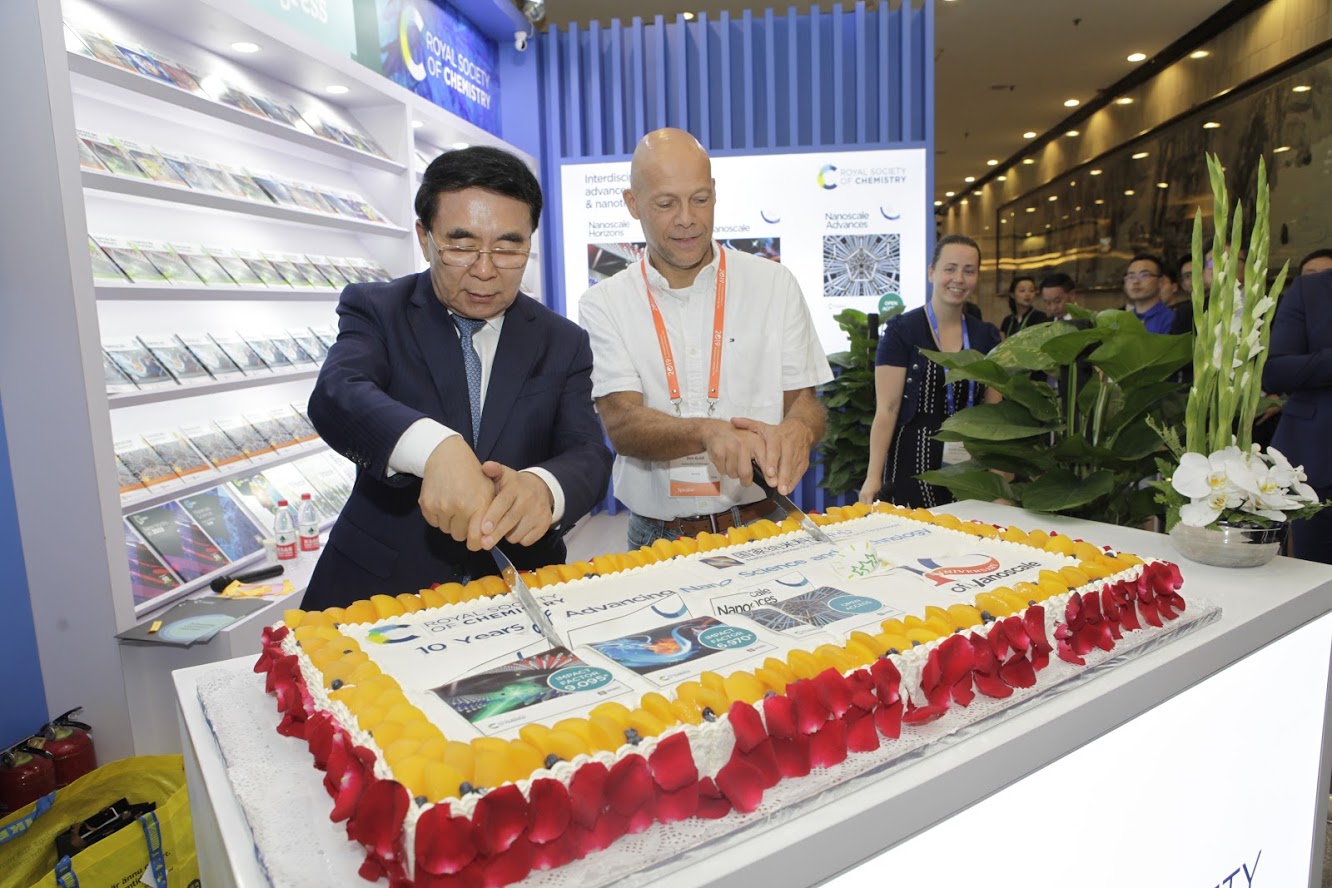

 We are delighted to offer invited speakers and selected attendees of NALS 2020 the opportunity to contribute some of their new high quality work to
We are delighted to offer invited speakers and selected attendees of NALS 2020 the opportunity to contribute some of their new high quality work to 


